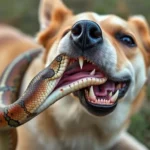
Proper nutrition is crucial for maintaining the health and vitality of pets, and French Bulldogs are no exception. These charming little companions come with unique anatomical features and health considerations that can affect their dietary needs. Understanding how much a French Bulldog should eat is essential for ensuring they remain healthy and active.
Understanding French Bulldog Nutritional Needs
Overview of French Bulldog Characteristics
French Bulldogs are known for their distinctive bat-like ears, compact stature, and affectionate nature. This breed typically weighs between 16 to 28 pounds, and their short snouts can lead to respiratory challenges. Their physical traits influence their nutritional needs, as their stocky build and propensity for certain health issues necessitate a well-balanced diet to maintain an ideal weight and overall well-being.
Factors Influencing Nutritional Requirements
Several factors influence how much a French Bulldog should eat:
- Age: Puppies, adults, and seniors have different caloric needs. Puppies require more calories for growth, while seniors may need fewer due to reduced activity levels.
- Weight and Size: Understanding your dog’s body condition score is vital for determining the appropriate amount of food. A healthy French Bulldog should have a defined waist and ribs that are slightly visible.
- Activity Level: Active dogs will require more calories than those that are less active. Assessing your dog’s daily activity will help you estimate their caloric needs accurately.
- Health Conditions: French Bulldogs are prone to obesity, allergies, and digestive issues. These conditions may require special dietary considerations and adjustments to their feeding routine.
Determining Daily Caloric Intake
General Guidelines for Caloric Needs
To maintain a healthy weight, the caloric requirements of French Bulldogs can be broken down by life stage:
- Puppies: 30 to 40 calories per pound of body weight.
- Adult Dogs: 25 to 30 calories per pound.
- Senior Dogs: 20 to 25 calories per pound.
These figures serve as general guidelines, and consulting a veterinarian for personalized recommendations is always wise.
Calculating Individual Caloric Needs
To calculate your French Bulldog’s daily caloric needs, you can use the following formula:
- Determine your dog’s weight in pounds.
- Multiply the weight by the appropriate caloric requirement based on their life stage and activity level.
For example, if you have a moderately active adult French Bulldog weighing 25 pounds, the calculation would be:
- 25 pounds x 30 calories = 750 calories per day.
This formula can be adjusted according to your dog’s activity level, with active dogs needing an additional 10-20% more calories.
Choosing the Right Food
Types of Dog Food
When selecting food for your French Bulldog, you have several options:
- Kibble: Convenient and often more economical, kibble can be nutritionally complete. However, choose high-quality brands that use real meat and avoid fillers.
- Wet Food: This can be more palatable for picky eaters and provides additional moisture, which is beneficial for hydration.
- Raw Diets: Popular among some dog owners, these diets can be nutritionally balanced but require careful handling to avoid health risks.
- Homemade Options: Preparing meals at home can ensure high-quality ingredients, but it’s crucial to consult a vet to create a balanced diet.
Each type of food has its pros and cons, but the key is to choose what works best for your French Bulldog.
Nutritional Content to Look For
When selecting food, prioritize the following nutritional components:
- Protein: Look for high-quality animal proteins as the first ingredient. This is essential for muscle maintenance and overall health.
- Fat: Healthy fats provide energy and support skin and coat health. Aim for moderate fat content.
- Fiber: A good source of fiber aids in digestion. Look for foods that contain vegetables or whole grains.
Avoid foods with excessive fillers, artificial colors, or preservatives, as these can be detrimental to your dog’s health.
Special Considerations for French Bulldogs
Due to their brachycephalic nature, French Bulldogs can have specific dietary restrictions. Foods that are too hard or dry may pose a choking hazard. Additionally, be cautious with ingredients that may cause allergies, such as wheat or certain proteins. Choosing breed-specific formulas can also help address their unique needs.
Feeding Guidelines and Schedules
How Often to Feed a French Bulldog
Feeding frequency varies between puppies and adults:
- Puppies: Typically require three to four meals a day to support their rapid growth.
- Adults: Most thrive on two meals per day, spaced evenly.
Establishing a routine helps maintain digestive health and can prevent overeating.
Portion Control
To prevent overfeeding, use the caloric needs calculation to determine appropriate portion sizes. Many dog food brands provide feeding guidelines based on the dog’s weight, which can serve as a helpful starting point.
A visual aid, such as a measuring cup, can be beneficial for accurate portion control. Remember that treats should not exceed 10% of your dog’s daily caloric intake.
Treats and Snacks
Treats can be a great way to reward your French Bulldog, but it’s essential to do so wisely. Opt for healthy, low-calorie treats and incorporate them into their daily caloric intake. Fresh fruits and vegetables like carrots or blueberries can also serve as nutritious snack options.
Monitoring and Adjusting Diet
Signs of Overfeeding or Underfeeding
Regularly monitoring your French Bulldog’s weight is crucial. Look for signs of overfeeding, such as:
- Lack of a visible waist.
- Difficulty in feeling ribs.
- Decreased energy levels.
Conversely, signs of underfeeding may include:
- Weight loss.
- Excessive hunger.
- Poor coat condition.
Regular weight checks and body condition scoring can help you stay on top of your dog’s health.
Adjusting Diet Based on Life Changes
Life events can necessitate dietary changes. For instance, a French Bulldog that becomes less active due to aging or health issues may require a reduction in calorie intake. Similarly, pregnant or nursing dogs will need increased calories and nutrition. Adjust portions and feeding frequency based on these changes, and consult your veterinarian for tailored advice.
Common Questions about French Bulldog Nutrition
Can French Bulldogs be fed human food?
Some human foods can be safe in moderation for French Bulldogs, such as:
- Cooked chicken or turkey (without bones).
- Carrots and green beans.
- Plain rice or pasta.
However, avoid foods that are toxic to dogs, such as chocolate, grapes, and onions. Always consult your vet before introducing new foods into their diet.
What to do if a French Bulldog is a picky eater?
If your French Bulldog is a picky eater, consider the following strategies:
- Consistency: Stick to a feeding schedule and avoid constantly switching foods.
- Enhancements: Mix in a small amount of wet food or low-sodium chicken broth to make dry kibble more appealing.
- Consultation: If the issue persists, consult your veterinarian to rule out underlying health problems.
Conclusion
A balanced diet is vital for the health and happiness of your French Bulldog. Understanding their unique nutritional needs and how much they should eat can help prevent obesity and related health issues. Regularly consulting with your veterinarian can ensure that your furry friend receives the best dietary care tailored to their individual needs. Monitoring their health and making necessary adjustments is essential for promoting a long, healthy life for your beloved companion.









